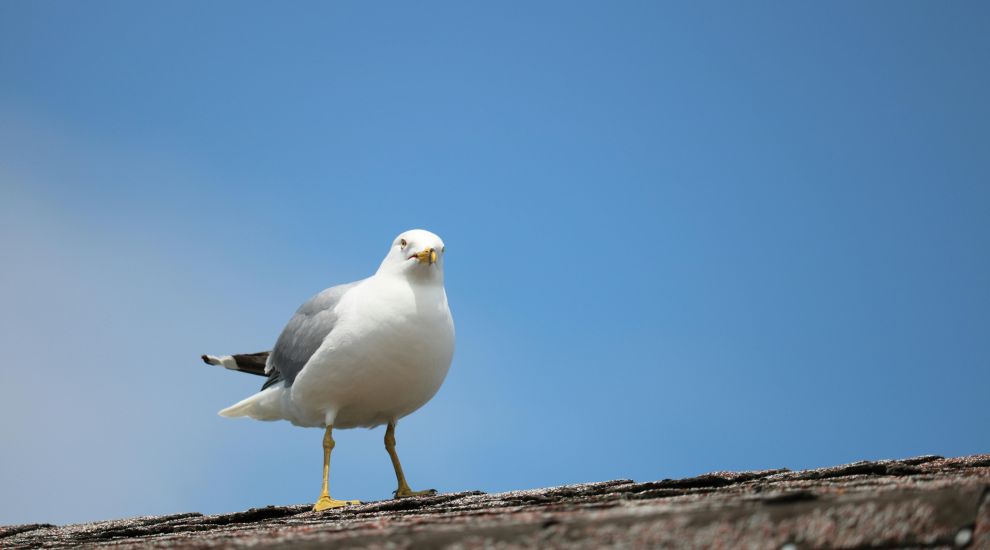


As seagull nesting season gets underway, islanders are being urged to take some precautionary steps – for the good of their rooftops, and baby gulls.
Every year, the JSPCA gets called to deal with nests and gulls, so has compiled a list of tips to help islanders deal with the "problematic" issue of them settling on roofs.
"Early preventative action can save both disruption and money and is considerably less traumatic for the gulls," the animal charity said.
"Check your roof for gull activity in the coming weeks especially if gulls have previously nested in your area. Advise your neighbours if you see gulls on their roof.
"Take early action if necessary by contacting a licensed controller, like the Environmental Department. Once eggs have hatched the removal of nests will mean killing the chicks. This is not an acceptable long term solution and causes unnecessary distress.
"Remove all unintended food sources and protect your rubbish.
"Do not feed gulls as it is illegal in most situations and can cause many problems.
"Consider long term preventative action to protect your roof to stop nesting- a licensed controller will be able to advise on options."
The JSPCA also reminded Islanders that all gull species are protected under the Wildlife (Jersey) Law 2021. This means it is illegal to cause harm to the birds, including their eggs, or to interfere with their nests without a required licence.
Further advice was issued about what action should be taken if gull chicks are found:
"It can be common to find a chick on the ground. A parent is likely to be nearby and can be aggressive. An uninjured chick must be left where it is in the care of its own parents.
"Do not under any circumstances feed the chick, give it water or handle it, as this will impact on its ability to survive as a wild bird. Gulls are intelligent birds and will quickly ‘imprint’ on humans causing problems for themselves and long-term public safety once released.
"If the bird appears to be in danger it should be moved only by a licensed professional."
Injured gulls are best reported to the JSPCA, who provide a 24-hour animal ambulance. Issues can be reported on 01534 724331 during office hours and emergencies can be reported by calling 07797 720331 at all other times.
Comments
Comments on this story express the views of the commentator only, not Bailiwick Publishing. We are unable to guarantee the accuracy of any of those comments.